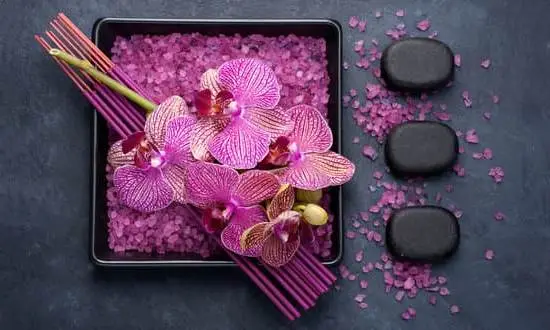Can you use aromatherapy essential oils in soap? In recent years, there has been a surge in the popularity of incorporating aromatherapy essential oils into various products, including soap. These natural oils are not only known for their pleasant scents but also for their therapeutic benefits. Aromatherapy essential oils can enhance the overall skincare experience, making them a valuable addition to any soap-making process.
Aromatherapy essential oils are highly concentrated plant extracts that are obtained through methods such as distillation or cold pressing. These oils are renowned for their various therapeutic properties, which can range from promoting relaxation and reducing stress to providing antiseptic and antibacterial effects. As a result, more people have become interested in harnessing the benefits of these natural oils by using them in their daily skincare routine, including soap-making.
In this article, we will explore how to effectively use aromatherapy essential oils in soap to maximize their benefits. From understanding the basics of making soap to learning about the different types of essential oils that cater to specific skin types and conditions, readers will gain valuable insights into creating their own aromatherapy-infused soaps. Additionally, we will delve into safety considerations and tips for enhancing the aromatic and therapeutic experience when using essential oils in soap-making.
The Basics of Making Soap
When it comes to making soap, there are a few basic things to consider in order to create a quality product. The soap-making process involves a chemical reaction between oils, water, and lye (sodium hydroxide). This reaction is known as saponification and creates the solid bars of soap that we use for personal hygiene. In addition to this fundamental process, there are several different types of soap bases that can be used to create soap with particular properties.
It’s important to note that there are two main methods of making soap: cold process and melt-and-pour. Cold process soap-making involves mixing oils and lye together, while melt-and-pour soap-making uses pre-made soap bases that only require melting and adding additional ingredients like essential oils. Both methods have their own benefits and drawbacks, so it’s important for beginners to research which method will best suit their needs.
The type of soap base chosen will also greatly impact the final product. Common soap bases include coconut oil base, olive oil base, shea butter base, and goat’s milk base. Each type of base offers unique properties such as cleansing ability, moisturizing qualities, or even specific skin benefits.
By understanding the basics of making soap and knowing the different types of bases available, you can create a customized skincare product that suits your individual needs. Additionally using aromatherapy essential oils in your soaps can not only benefit your skin but also provide relaxation through its therapeutic effects.
| Soap Base | Properties |
|---|---|
| Coconut Oil Base | Great cleansing ability and produces big fluffy bubbles |
| Shea Butter Base | Highly moisturizing and suitable for dry or damaged skin |
| Olive Oil Base | Gentle on the skin and provides conditioning properties |
| Goat’s Milk Base | Nourishing and gentle on sensitive or irritated skin |
Benefits of Using Aromatherapy Essential Oils in Soap
Aromatherapy essential oils are becoming increasingly popular in a wide variety of products, including soap. These oils are extracted from plants and have been used for centuries for their therapeutic properties. Aromatherapy essential oils can provide numerous benefits when incorporated into soap, making it not only a cleansing agent but also a holistic experience for the mind and body.
One of the primary benefits of using aromatherapy essential oils in soap is their therapeutic effects on the skin. Essential oils like lavender, tea tree, and chamomile have anti-inflammatory and antibacterial properties that can help soothe and cleanse the skin, making them ideal for individuals with sensitive or acne-prone skin. Additionally, certain essential oils such as eucalyptus and peppermint can provide a cooling sensation, perfect for refreshing the skin during hot weather.
Furthermore, aromatherapy essential oils in soap can also offer aromatherapeutic benefits to promote relaxation and uplift the mood. The inhalation of these essential oil-infused soaps can stimulate the olfactory system and trigger positive emotional responses. For example, citrus scents like lemon or orange can be invigorating and uplifting, while floral scents like rose or geranium can be calming and comforting.
| Benefits | Examples |
|---|---|
| Therapeutic effects on the skin | Lavender, Tea Tree, Chamomile |
| Aromatherapeutic benefits | Lemon, Orange, Rose, Geranium |
How to Incorporate Aromatherapy Essential Oils Into Soap
Aromatherapy essential oils are a popular choice for adding fragrance and therapeutic benefits to soap. Many people enjoy using these oils in their skincare routine to promote relaxation, reduce stress, and improve overall well-being. Incorporating aromatherapy essential oils into soap is a simple process that can elevate the bathing experience, providing both physical and emotional benefits.
To incorporate aromatherapy essential oils into soap, follow these step-by-step instructions:
1. Choose the right essential oil: Select an essential oil or a blend of oils that you want to use in your soap. Consider the therapeutic properties of each oil and how it aligns with your skincare needs.
2. Determine the dosage: Essential oils are potent, so it’s crucial to use them in moderation. The recommended dosage for adding essential oils to soap is typically 3-5% of the total weight of the soap base.
3. Add the essential oil: Once you have determined the amount needed, add the essential oil to the soap base during the soap-making process. This can be done during the melting phase when using a melt-and-pour base, or during the trace phase when making cold-process soap.
4. Mix thoroughly: After adding the essential oil to the soap base, mix it thoroughly to ensure that the fragrance is evenly distributed throughout the mixture.
By following these steps, you can easily incorporate your favorite aromatherapy essential oils into homemade soap, creating a personalized product that caters to your specific wellness needs.
Popular Aromatherapy Essential Oils for Soap-Making
When it comes to making soap with aromatherapy essential oils, there are numerous options to choose from. Each essential oil offers unique properties and benefits that can cater to specific skin types and conditions. Here are some of the most popular aromatherapy essential oils used in soap-making:
- Lavender: Known for its calming and soothing properties, lavender essential oil is a popular choice for soap-making. It is gentle on the skin and has a pleasant floral scent.
- Peppermint: Peppermint essential oil adds a refreshing and invigorating aroma to soaps. It also has cooling properties that can help soothe irritated or sensitive skin.
- Tea Tree: With its antibacterial and antifungal properties, tea tree essential oil is often used in soaps targeted towards acne-prone or oily skin. It has a fresh, medicinal scent.
In addition to these popular options, other essential oils like eucalyptus, lemon, and chamomile are also commonly used in soap-making for their unique therapeutic benefits and appealing fragrances.
It’s important to note that when incorporating aromatherapy essential oils into soap, it’s crucial to consider the intended purpose of the soap and the desired effect on the skin. Whether it’s for relaxation, rejuvenation, or addressing specific skincare concerns, choosing the right combination of essential oils can greatly enhance the overall experience of using the soap.
Tips for Enhancing the Aromatherapy Experience
Choosing the Right Essential Oils
When it comes to enhancing the aromatherapy experience in soap-making, choosing the right essential oils is crucial. Consider the therapeutic properties of each essential oil and how they can benefit your skin and overall well-being. For example, lavender essential oil is known for its calming and soothing properties, making it perfect for a relaxing bath or shower experience. On the other hand, peppermint essential oil can provide a refreshing and invigorating sensation, making it ideal for morning showers.
Layering Scents
One way to enhance the aromatherapy experience in soap is by layering scents. This involves using multiple essential oils with complementary fragrances to create a more complex and captivating aroma. For example, combining citrusy notes with floral or earthy scents can create a multi-dimensional fragrance that stimulates the senses and uplifts the mood.
Addition of Exfoliants or Botanicals
Incorporating exfoliants or botanicals into your soap recipe can further enhance the aromatherapy experience. Ingredients such as dried herbs, flower petals, or natural exfoliants like ground oatmeal or coffee grounds not only add texture to the soap but also release their own subtle fragrances when combined with essential oils. This creates a sensory experience that engages both sight and smell, elevating your daily skincare routine.
By incorporating these tips into your soap-making process, you can create luxurious and indulgent aromatherapy-infused soaps that not only cleanse and nourish the skin but also provide holistic benefits for the mind and body.
Safety Considerations When Using Aromatherapy Essential Oils in Soap
Important Safety Guidelines
When using aromatherapy essential oils in soap, it is crucial to follow recommended safety guidelines to ensure a safe and enjoyable experience. Essential oils are highly concentrated plant extracts and should be handled with care. It is important to always use essential oils that are specifically labeled for aromatherapy or cosmetic use.
Additionally, essential oils should never be applied directly to the skin at full strength, as this can cause irritation or allergic reactions. Diluting essential oils in a carrier oil before adding them to soap is recommended.
Potential Risks and Mitigation
While aromatherapy essential oils can provide numerous benefits, they also carry potential risks when not used properly. Some essential oils may cause photosensitivity, making the skin more susceptible to sun damage. It is important to be aware of any photosensitive essential oils and avoid using them before sun exposure.
Furthermore, certain essential oils may not be suitable for individuals with specific health conditions or during pregnancy. Researching the contraindications of each essential oil before incorporating them into soap is crucial to prevent any adverse effects.
Storage and Handling
Proper storage and handling of aromatherapy essential oils is essential for maintaining their quality and safety. Essential oils should be stored in dark glass bottles away from direct sunlight and heat to prevent degradation. Keep them out of reach of children and pets, as ingesting large amounts of certain essential oils can be toxic. When handling undiluted essential oils, it is advisable to use gloves and work in a well-ventilated area to minimize exposure.
By adhering to these safety considerations when using aromatherapy essential oils in soap-making, individuals can enjoy the therapeutic benefits while ensuring a safe and enjoyable experience. It is important to educate oneself on the proper usage and precautions associated with each essential oil before incorporating them into homemade soaps.
Conclusion
In conclusion, it is clear that incorporating aromatherapy essential oils into soap can significantly enhance its benefits and therapeutic properties. The use of these natural oils not only adds a delightful fragrance to the soap but also offers various skin-nourishing and healing effects. With the growing popularity of aromatherapy, more individuals are turning to essential oil-infused soaps for a holistic skincare experience.
The process of adding aromatherapy essential oils to soap is relatively simple and allows for customization based on individual preferences and skin needs. Whether it’s to relax, rejuvenate, or address specific skin conditions, there is an essential oil that can cater to those needs. Additionally, by following safety guidelines and recommended dosage, one can enjoy the benefits of aromatherapy without any adverse effects.
As with any skincare regimen, it’s important for individuals to experiment with different essential oils and find what works best for their skin type and personal preference. Furthermore, combining complementary scents and ingredients can further enhance the overall aromatherapy experience. Ultimately, using aromatherapy essential oils in soap offers a natural and holistic approach to skincare that many individuals can benefit from.

Are you looking for a natural way to improve your health and wellbeing?
If so, aromatherapy may be the answer for you.





